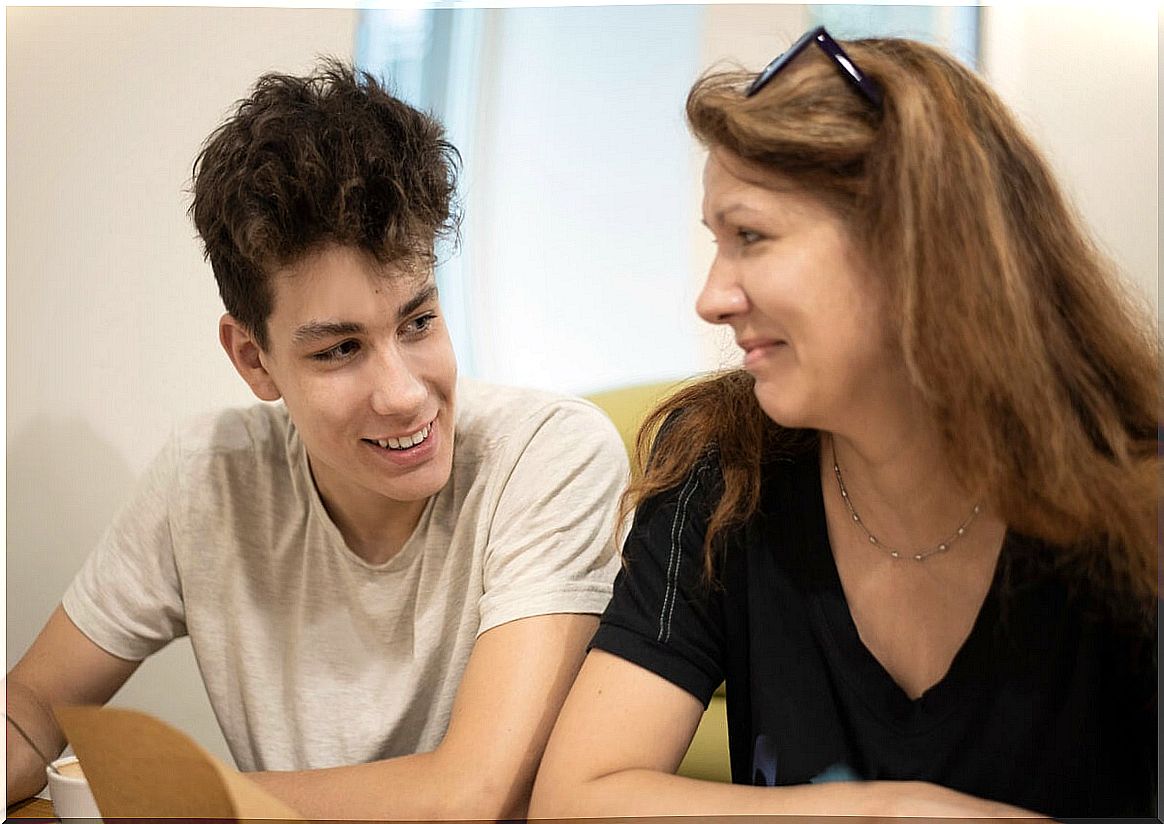What To Do About Teenage Lies?

The presence of lies in adolescence is an everyday phenomenon, just as it occurs with other human beings in other phases of life. In fact, we consider lying to be a milestone in early childhood life, as it represents a breakthrough in a child’s cognitive development and theory of mind. The fact that she can do this means that she is able to mentally work with an imaginary reality, a skill that requires advanced cognition.
In adolescence, lying can become a problem when it becomes a frequent or preferred coping strategy. This pattern is no less common in teenagers than in children or adults; the opposite has been observed: teenagers are more likely to lie, especially to their parents.
A survey by Arnett et al. (2004) found that adolescents often lie to their parents and use lying as a way to assert their right to autonomy. They also found that teenagers reported lying more compared to a sample of adults.
Another study by Levine et al. (2013) found that teenagers lie more often than college students or adults. On average, they reported telling 4.1 lies in the past 24 hours, 75% more than college students and 150% more than adults.
Ways of lying in adolescence
People can lie in at least two ways:
- By default: consists of not intentionally sharing information.
- By commission:: consists in giving testimony of something different from what actually happened. These kinds of lies are not just about facts. For example, we can pretend that we think one option is correct, when in reality we believe it is another.
On many occasions, people adhere to another strategy: avoidance. We try not to find some people so we don’t have to lie to them.

What motivates lies in adolescence?
One of the reasons teenagers lie to their parents is because they try to assert their dominance and autonomy in decision making. It must be remembered that adolescence is a stage of development in which autonomy is important. This period is defined by Erikson (cited in Papalia, 2017) as a ‘coherent conception of oneself, composed of goals, values and beliefs to which the person establishes a solid commitment’ (p.357).
Teenage lies are often the result of excessive parental control over their children. Arnett et al. (2004) found in their research that the more control parents exert, the more likely teens are to lie. This can lead to the perpetuation of the lying control cycle, because parents, realizing that their children are lying to them, tend to be even more controlling.
They also lie out of fear or shame, to obtain something, to protect someone, not to face the consequences of the truth (Martins and Carvalho, 2019). They can do this to cover up emotions or feelings they don’t want to share with their parents. When there are a lot of problems at home, teenagers avoid telling the truth so as not to make things worse.
Psychologist Kate Aubrey proposes five reasons for teenage lies:
- To avoid problems.
- Not to disappoint the parents.
- Due to social pressure, for example, not to miss a party or activity with friends.
- Bad communication. If the teenager feels that he will not be understood, listened to or respected, he will avoid communicating.
- For control, which is important to develop your autonomy.
As parents, what to do about teenage lies?
Chris Hudson, a youth expert and parenting coach, proposes eight ways to confront and reduce teen lies:
1. Connected relationships
A connected relationship requires good communication. Are we receptive to hearing certain truths?
Sometimes teenagers lie because they know their parents don’t want to hear the truth. For certain confidences, there needs to be a climate of trust.
2. Honesty Model
One of the main ways people learn is through observation, and teenagers are no exception. Teach them to be honest with your example. Your child should see that you are a model of honesty, not just a “preach” person.
By what authority will you tell your teenager not to tell lies if you consistently use them in your own life?
3. Negotiate
Learn to negotiate the boundaries with your teen so they don’t feel like an imposition. When a person is prohibited from doing something or has their freedom restricted, the most normal reaction is to try to restore it by acting the opposite. When negotiating, adolescents reduce the perception of being controlled and increase their sense of autonomy by participating in decision-making.
4. Avoid interrogations, encourage conversations
If your child has lied to you, try to have a peaceful conversation with him. Even if you are feeling very angry, try to calm down before starting a conversation. Angry, you will be less open to listening to your child and understanding the reasons why he lied. Remember to communicate assertively and be clear about what you want to teach.
5. Don’t cheat
As teenage lies are very common, if you discover the truth, avoid waiting for the opportunity to catch the teenager “in the act”. Remember that hiding the truth is a form of lying, so you would incur what you want your child not to do.
6. Use punishment proportionately and intelligently
How you respond to your teenager’s behavior will greatly determine your future behavior. If you impose a disproportionate punishment for the fault, what you can sow in teenagers is fear.
When disciplining, try to keep in mind what you want to teach and find the right ways to do it. Explain the reasons why what is being punished should not be done. Communicate assertively and listen to what your child has to say.

7. Do not label
Don’t define your child as a liar because you can make him behave like that to reaffirm that “identity.”
How we name and label people shapes the way we behave around them. If you label your child a liar, he is more likely to end up behaving like a liar.
8. Pay attention
Be aware of your child’s lies and discuss his motives with him. This will help you understand a little about how your child relates and the intentions that lead him to lie. Once you’ve identified why, invite your child to reflect on new ways to handle situations and the importance of honesty. Don’t focus so much on the lie as on the reasons behind it.
Lies are very common and multi-cause in adolescence. To deal with them and the difficulties they cause in the family environment, one of the main strategies is to change the relationship with the young person and generate spaces for assertive dialogue that allow understanding the dynamics and reasons why they resort to lies.









